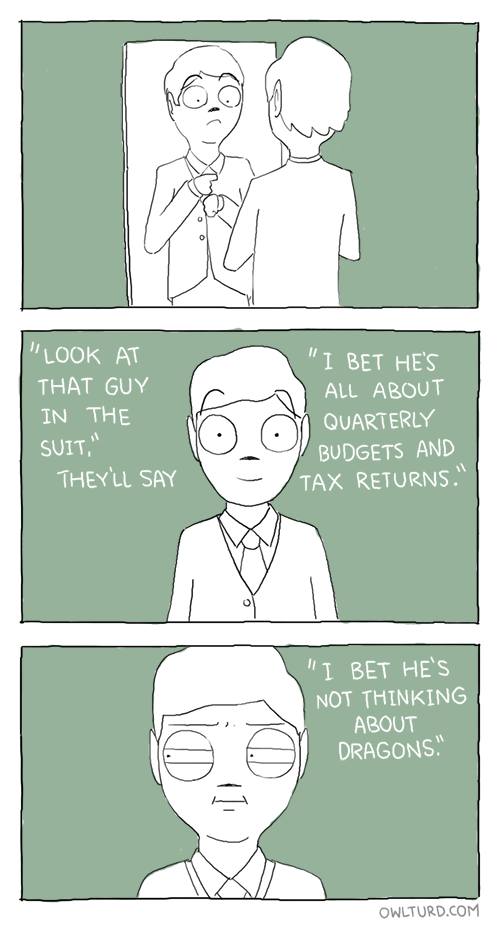What is the relation between dressing modestly and acting modestly? Are they the same thing or is it a word with two definitions? If it's two definitions, where's the relationship?
It wasn't until I read 1 Timothy 2:8-10 that I started to understand the answer. Turns out I didn't know what the scriptures have to say on this subject as well as I thought I did.
8 I will therefore that men pray every where, lifting up holy hands, without wrath and doubting.
9 In like manner also, that women adorn themselves in modest apparel, with shamefacedness and sobriety; not with broided hair, or gold, or pearls, or costly array;
10 But (which becometh women professing godliness) with good works.
(Emphasis added)
First thing I noticed, is that verse nine is one of the verses often associated with sexism in the scriptures. However, I also noticed that it was in the middle of a thought. Here is how the thought is broken down if just read without connecting the parts or viewing it as one complete thought:
- Men need to pray
- Women need to dress modestly
- Women should not wear costly apparel
- Women should wear good works instead
That just does not make sense. First off, and most blatantly wrong, is that you cannot wear good works. Secondly, if this passage is just addressing modesty, why is modesty compared to praying and having holy hands?
 This is when I remembered a chapter from a book I once read. As research for a paper about ideal body types throughout the ages, I read a book written in the mid 1800's about being a lady. The author spent an entire chapter on out-dressing other women. Essentially he spent a chapter telling women that people can tell when you over-dress for attention. He told women not to compare themselves to each other, especially by how others are dressed. He said it is unflattering and a waste of time.
This is when I remembered a chapter from a book I once read. As research for a paper about ideal body types throughout the ages, I read a book written in the mid 1800's about being a lady. The author spent an entire chapter on out-dressing other women. Essentially he spent a chapter telling women that people can tell when you over-dress for attention. He told women not to compare themselves to each other, especially by how others are dressed. He said it is unflattering and a waste of time.
Sound familiar? I've heard these things said by people who are still alive and born within the last half-century. If it's true that women compare themselves too much today, and it was true in the1800's, I'm not too concerned with the idea that it has been true for a very very very long time.
Perhaps Paul was not trying to tell women what to wear and what not to wear, but was trying to tell women where to put their priorities. Perhaps he was saying to focus on your good works instead of what you're wearing. Paul did announce himself a preacher, apostle, and teacher in verse 7. Wouldn't it make sense that he would be trying to teach a lesson instead of just telling people what to do?
The lesson I learned from these verses is that, like men having "holy hands" by not showing wrath or doubt with each other, women should also have "holy hands" and be more concerned with people recognizing that in them than with how they are dressed. In other words, a woman should strive to be described as a good and charitable person before being described as fashionable. A man should strive to be described in a similar manner without being described as wrathful and contentious (as taken from the foot notes for doubting in the LDS printing of the KJV). Therefore, modesty is more of an attitude than about how you look or dress.
But if that's the case, why is dressing modestly talked about so much and why are there specific rules? First off, it's important to remember that there are rules that apply to both men and women, though they may be different. It's also important to realize that modesty standards vary from denomination to denomination within Christianity. I also find it very interesting that most religions have a modesty standard.
I am Mormon, so I cannot speak for why other Christian faiths have their modesty standards, if they do hold specific ones. I can, however, speak as specifically as I can for the Mormon standards. First I'll go through the general modesty rules for both men and women.
Men
- Thighs should be covered.
- A shirt should be worn.
- Shirts should have sleeves/Shoulders should be covered.
- Shirts should not have low-cut collars.
Women
- Thighs should be covered.
- A shirt that covers the torso should be worn.
- Shirts should have sleeves/Shoulders should be covered.
- Shirts should not have low-cut collars in front or back.
You many notice that I just described the outline of LDS temple garments. I did, and part of that is because we have been told to completely cover our garments with our clothing. However, those who want to one day enter the temple should also try and dress this way, and I will get to why later. First I will address why we are instructed to dress modestly in the first place.
In 1 Corinthians 6:19, it says "Know ye not that your body is the temple of the Holy Ghost which is in you?" Our bodies are often described as temples throughout the scriptures and even more often by the General Authorities of the Church. We should treat our bodies with the same reverence and respect as we treat the temples. Elder Hales said, "When we recognize our bodies as the gifts they are and when we understand the mission they help us fulfill, we protect and honor them by how we act and dress."
My previous blog post on modesty is entirely dedicated to this idea, so I will not venture further into this aspect of why we dress modestly. It is now time to address why the modesty guidelines are the way they are.
As stated in the video released by the LDS Church, temple garments are sacred and symbolic. We believe that they provide us with a promise and a protection when worn worthily. Just as those striving to enter the temple are asked to live in accordance to the standards that they will be held to after attending the temple (often referred to living a "temple worthy life"), they should also be dressing as if they have already made the covenants to receive their temple garments. As stated previously, the temple garments are symbolic. By covering them with our clothes, that symbolism is extended to our bodies, making them more sacred and symbolic as well. We should care just as much about this aspect of temple-worthiness as we should about all the others.
I will end this rather long post with some of the conclusions I have drawn from coming to understand this principle.
- Our bodies cannot work against our modesty. I do not know many men who struggle with this, but I do know women who have personally struggled with this or who have been the subject of criticism because of it. If you have large breasts and cannot seem to cover your cleavage, you are okay. You may show massive amounts of cleavage in anything but a turtleneck, but God understands. The important thing is that you are not trying to use your body as an object. Same goes for women with very long legs. Things that would normally hit a woman at or below the knee may not quite reach your knee. God understands your struggles as well. He does not want His children to be uncomfortable for the sake of meeting cultural standards. As long as you are meeting His standards, you are doing fine.
- Modesty has nothing to do with sexuality. A woman, or man, it goes both ways, can dress as modestly as they come and someone can still look upon them lustfully. Modesty is not for other people. It is for yourself. The only time it can be argued that it is for other people is by showing respect for others by dressing appropriately for whatever your setting may be. It is never to "keep the boys pure." (Or girls pure. It is an outdated idea that women do not have those thoughts and desires as well.)
- Modesty is very personal. No one should expect anyone else to hold themselves to the modesty standards of their religion. If you do not share beliefs, then what is immodest to you may be modest to them.
- Modesty should not be taught based around how we should be dressed. First off, it's disrespectful to the sacredness of this principle and, secondly, it leads to the perpetuation of the idea that modesty is more for women than men. The only reason why modesty is taught so differently to women than men is because there is a larger variety of clothing styles for women than men. Modesty should be taught the same way to both women and men, or boys and girls, whatever age, I don't really care. Young men need to understand why modesty is important just as much as young women.









